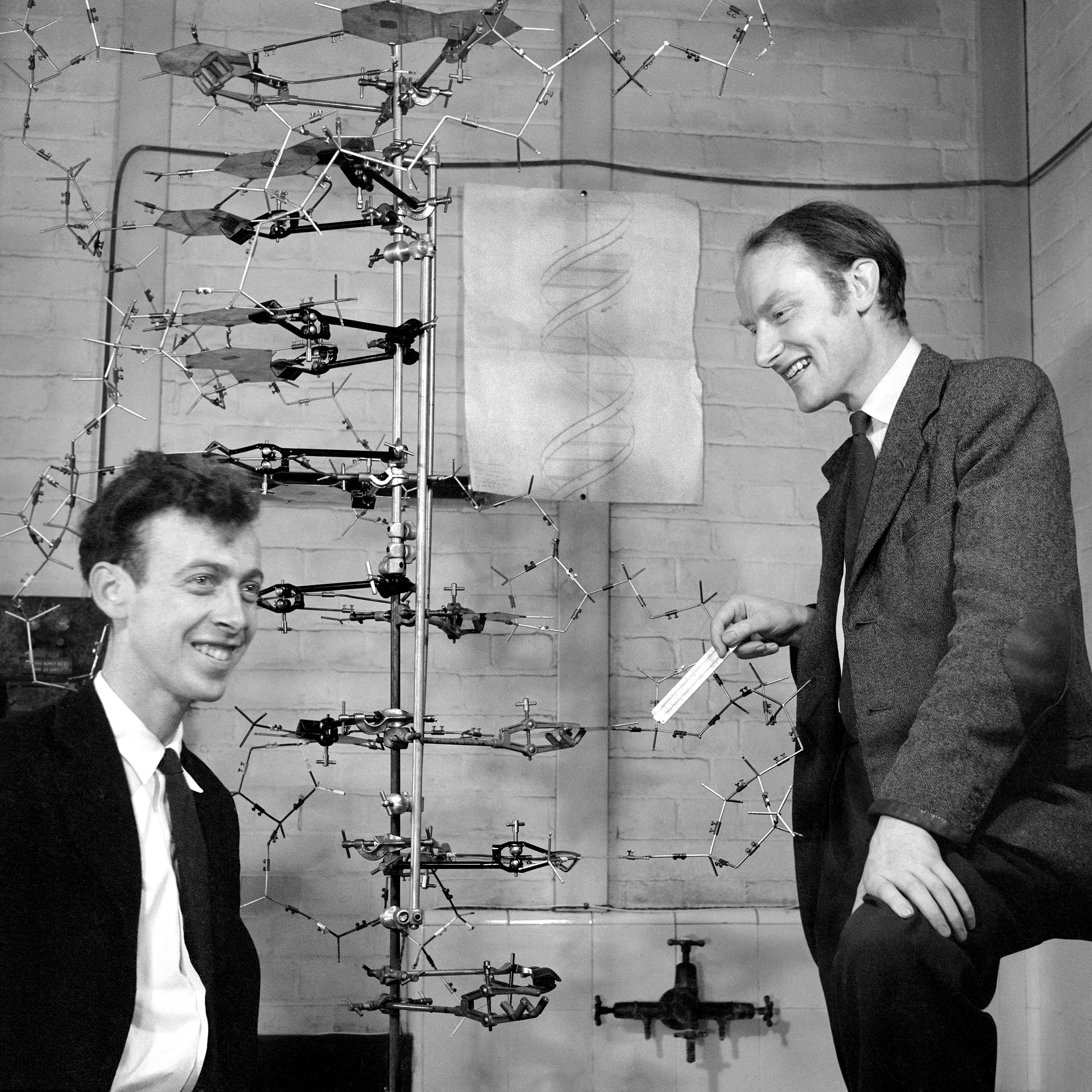
Watson, James Dewey (1928-…), is an American biologist. He shared the 1962 Nobel Prize in physiology or medicine with biologist Francis H. C. Crick and biophysicist Maurice H. F. Wilkins, both of Britain. In 1953, Watson and Crick, relying mainly on experimental data provided by Wilkins, devised a model of the molecular structure of deoxyribonucleic acid (DNA). DNA is the substance that makes up genes, the material in cells that determines the characteristics of an organism.
The Watson-Crick model shows that a DNA molecule forms a double helix—that is, it resembles a twisted ladder. Each “rung” consists of one of two pairs of chemicals, called base pairs. If the ladder is divided at the middle of each rung, the legs form two new ladders, each identical to the original ladder. The model thus suggested how genetic information is passed from one generation to the next. See Heredity (The chemistry of genes).
Watson was born on April 6, 1928, in Chicago. He studied at the University of Chicago and Indiana University. In 1955, Watson joined the biology faculty at Harvard University. In 1968, he became director of the Cold Spring Harbor Laboratory on Long Island, New York. That same year, he published The Double Helix, an account of the discovery of the DNA structure.
From 1988 to 1989, Watson was associate director for human genome research at the National Institutes of Health in Bethesda, Maryland. From 1989 to 1992, he was director of the agency’s National Center for Human Genome Research (now the National Human Genome Research Institute). In that position, he helped launch a project to locate the genes and determine the sequences of chemical base pairs in the human genome (all the genes in a human cell).
Watson retired as chancellor of the Cold Spring Harbor Laboratory in 2007. Over many years, Watson had occasionally expressed controversial views on heredity and intelligence. In 2019, the Cold Spring Harbor Laboratory relieved Watson of his remaining honorary positions at the institution for repeating opinions that were widely regarded as racist.
